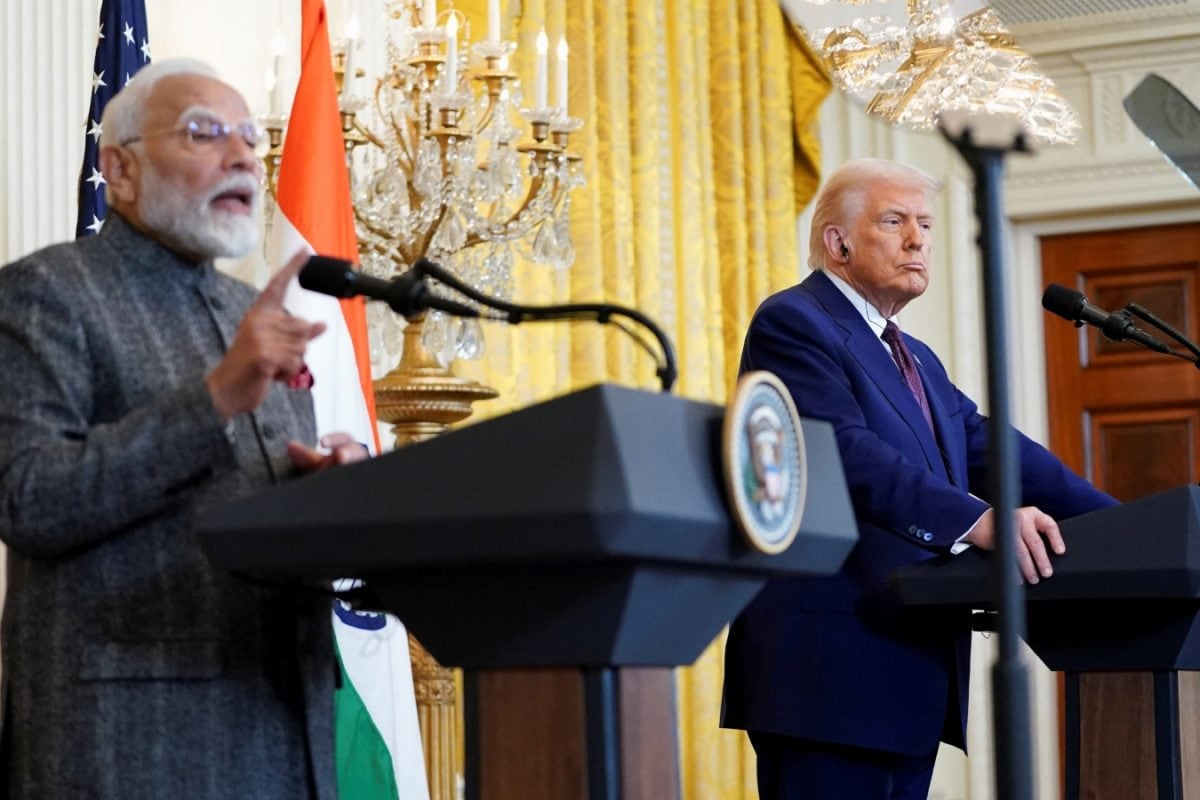

Amid escalating trade tensions, former U.S. President Donald Trump has declared a halt to trade negotiations with India, citing the country's continued import of Russian oil as the primary sticking point. This decision follows the imposition of an additional 25% tariff on Indian goods, effectively doubling the existing levy to 50%. The U.S. administration views India's reliance on Russian oil as a national security and foreign policy concern, alleging that it financially supports Russia's war efforts in Ukraine.
India, the world's third-largest oil importer and consumer, relies on imports for over 85% of its crude oil needs. Following Russia's invasion of Ukraine in 2022 and subsequent Western sanctions, India significantly increased its intake of discounted Russian crude, which had previously been unattractive due to high freight costs. This shift made Russia India's top oil supplier, accounting for roughly 40% of its total crude imports. In the first half of 2025, India imported approximately 1.75 million barrels per day of seaborne crude from Russia.
Trump's administration has criticized India for using American dollars to purchase Russian oil, deeming it an unfair trade practice. The U.S. has also expressed concerns that India is refining Russian crude and exporting it to G7+ countries. Despite the increased tariffs and stalled negotiations, Indian government sources have indicated that the country will continue buying Russian oil, asserting that it is a "necessity compelled by global market situation".
Prime Minister Narendra Modi has responded to Trump's actions with defiance, stating that India will not compromise on the interests of its farmers, livestock rearers, and fisherfolk, even if it means paying a heavy price. This stance reflects India's reluctance to open its markets to American genetically modified (GM) crops and duty-free imports on U.S. farm and dairy products, which have been key demands in the trade negotiations.
The increased tariffs are expected to impact approximately 4.8% of India's total exports, affecting sectors such as textiles, marine products, leather, and chemicals. Trade experts believe that Trump's actions are a pressure tactic to gain concessions in the ongoing bilateral trade agreement (BTA) negotiations. The U.S. is seeking duty concessions on electric vehicles, dairy, wines, petrochemical products, apples, tree nuts, and genetically-modified crops.
Despite the trade dispute, a senior Indian diplomat affirmed that bilateral trade negotiations would continue, expressing confidence that mutually beneficial solutions would be found. However, Trump has explicitly stated that there will be no trade talks until the tariff dispute is resolved. A U.S. delegation was scheduled to visit India on August 25 for the next round of negotiations for the proposed BTA, but the fate of this visit is now uncertain.
In response to the increased pressure, some Indian state-owned oil refiners are reportedly scaling back spot purchases of Russian crude. This could lead to increased demand for alternative crude sources from the Middle East, the U.S. and Africa. However, India's foreign ministry has stated that it began importing from Russia because traditional oil supplies were diverted to Europe after the outbreak of the Ukraine war and has diversified its sources of supply to about 40 countries.
The current situation presents a significant challenge to the U.S.-India relationship, testing India's non-alignment foreign policy and its ability to balance its economic interests with geopolitical pressures. While India maintains that its purchase of Russian oil is a matter of national sovereignty and energy security, the U.S. views it as a hindrance to its efforts to isolate Russia economically. The standoff raises questions about the future of U.S.-India trade relations and the potential for further escalation in the ongoing trade dispute.